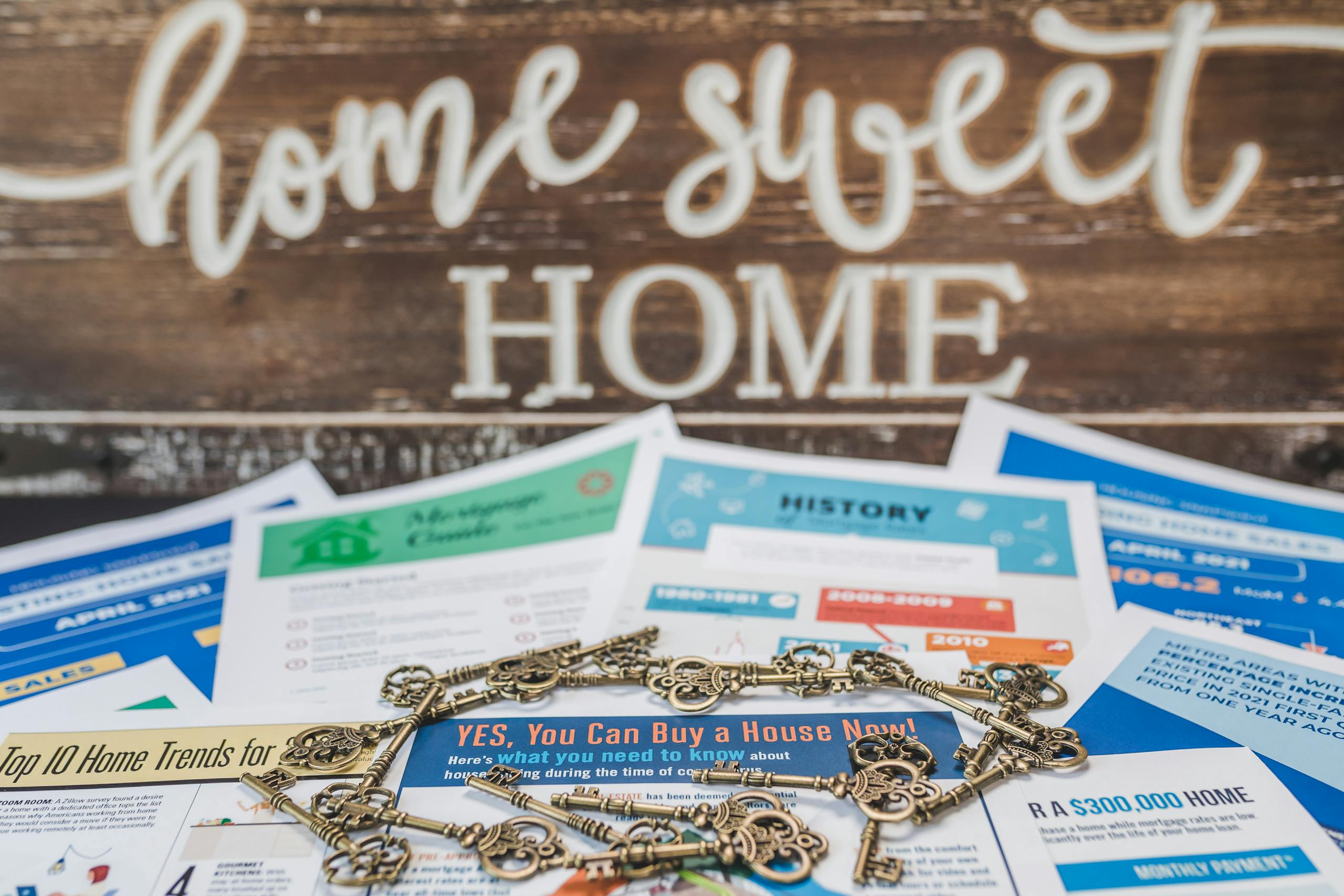Foreign National Mortgages
What is foreign national mortgages? Thanks to its stability, growth potential, and investment opportunities, the U.S. real estate market attracts international buyers. However, the path to homeownership in America can be confusing for non-U.S. residents often referred to as foreign nationals. That’s where foreign national mortgage loans come in. This guide includes everything you need to know about foreign national mortgages: how they work, who qualifies, what documents you’ll need, and the pros and cons. Whether you’re buying a vacation home, an investment property, or a second residence, understanding your financing options as a non-resident is key.
What are Foreign National Mortgages?
Foreign national mortgages are loans designed specifically for non-U.S. citizens or non-permanent residents who want to buy real estate in the United States but don’t have a Social Security number, U.S. credit history, or legal residency status. These loans are offered by private lenders, portfolio lenders, and other banks that specialize in serving international clients. They often have flexible guidelines but may require larger down payments and higher interest rates to offset the increased risk.
Looking to Purchase Property in Georgia as a Foreign National? We Can Help
Contact us today to explore your options and start the process of securing a foreign national mortgage.
Who Is Considered a Foreign National?
Most lenders define a foreign national as someone who:
- Lives outside the U.S.
- Is not a U.S. citizen or permanent resident (green card holder)
- Has a valid passport and visa (tourist, work, or investor)
- Has no established credit or Social Security number in the U.S.
Even if you visit the U.S. frequently or own U.S.-based businesses, if you don’t have permanent legal status, you’ll likely fall under this category for mortgage purposes.
Why Do Foreign Nationals Buy Property in the U.S.?
Foreign buyers are attracted to U.S. real estate for many reasons, including investment opportunities in growing markets, vacation or second homes, children attending U.S. universities, diversification of assets, rental income from Airbnb or long-term tenants, and wealth preservation in a politically stable economy. Top cities for foreign buyers include Miami, New York, Los Angeles, Houston, and Orlando.
Requirements for Foreign National Mortgage Loans
While every lender is different, here are the standard requirements for foreign national mortgages:
- Valid Passport and Visa
You must show that you’re legally allowed to enter and stay in the U.S., typically through a visa (B1/B2, L1, E-2, etc.) and a valid passport from your home country. - Down Payment (Typically 25%–40%)
Foreign national loans often require higher down payments than traditional loans. Most lenders expect at least 30% down, although some may go as low as 25% depending on property type and location. - Foreign Credit Report or Letters of Credit
Since you may not have a U.S. credit score, lenders may request international credit reports from companies like Experian or TransUnion Global, letters of credit from banks or creditors in your home country, and business financials if self-employed. - Proof of Income and Assets
Lenders wanted to know if you can repay the loan. You’ll likely need to provide 2 years of tax returns or bank statements, employment verification or business ownership documents, and proof of liquid assets in a U.S. or international bank. - Reserves
Many lenders require 12 to 24 months of mortgage payments in reserves. These funds must be verified and readily accessible.
Types of Properties You Can Finance
Foreign national mortgages can be used to buy single-family homes, condos and townhomes, multi-family properties (2–4 units), vacation homes, and investment properties (short- or long-term rentals). However, most lenders do not allow foreign nationals to purchase primary residences since the borrower doesn’t live full-time in the U.S.
Foreign National Mortgages: Interest Rates and Terms
Because foreign national loans carry more risk, interest rates are typically higher than those for U.S. citizens often by 1% to 2% more. Loan terms usually include 30-year fixed rates, adjustable-rate mortgages (ARMs), and interest-only options. Expect rates to vary based on down payment, creditworthiness (if applicable), and the lender’s portfolio guidelines.
Foreign National Mortgages Documentation Checklist
Here’s what most lenders will ask for:
- Valid passport and visa
- Proof of funds (down payment + reserves)
- International bank statements (2–6 months)
- Credit reference letters or international credit report
- Employment verification or business documents
- Sales contract and property details
- U.S. bank account (preferred but not always required)
- Letter of explanation (optional, for context or goals)
Tip: Work with a lender experienced in foreign national mortgages to avoid unnecessary delays or confusion.
How to Get a Foreign National Mortgage in 7 Steps
- Find a lender who offers foreign national loans
Not all banks or brokers offer them, so look for specialists. - Get prequalified
Submit basic documents to see what loan size you qualify for. - Open a U.S. bank account
This makes it easier to transfer funds and set up mortgage payments. - Choose a property
Make sure the property type and location are approved by your lender. - Submit a full application
Provide documentation, including ID, proof of income, assets, and credit. - Go through underwriting and appraisal
The lender will review your file and order an appraisal. - Close on the loan
You may be able to close remotely with a power of attorney or travel to the U.S. to sign in person.
Advantages of Foreign National Mortgages
One advantage of foreign national mortgages is access to U.S. real estate without citizenship. They also build wealth and rental income in a stable economy and diversify investments across countries and currencies. They use real estate as a hedge against inflation or currency instability. Lastly, they hold property in your name, trust, or foreign entity.
Challenges and Considerations
Higher down payments are required because the borrowers are foreign nationals (often 30–40%). Only a limited number of lenders offer these loans, which have higher interest rates than for U.S. citizens. They require more complex documentation and paperwork, and the property must usually be for investment or vacation use.
Tax and Legal Considerations for Foreign Buyers
Before buying U.S. real estate, foreign nationals should speak with a U.S. tax advisor or attorney. FIRPTA Withholding, Estate Taxes, and Rental Income Taxes are key issues to consider. Under the Foreign Investment in Real Property Tax Act or FIRPTA, the IRS may withhold 15% of the sale price when you sell the property unless exemptions apply. Foreign owners of U.S. property may be subject to U.S. estate taxes if they pass away while owning the asset. Rental income from U.S. properties must be reported to the IRS, and taxes may apply.
Looking to Buy Property in the U.S. as a Foreign National?
Our Foreign National Mortgage program makes it possible for non-U.S. citizens to invest in U.S. real estate. Reach out today to discuss your mortgage options and get pre-approved.
Foreign National Mortgages: Working With the Right Team
Buying real estate as a foreign national is complex but very doable with the right team. Consider getting a real estate agent who has full knowledge about foreign buyers, a mortgage broker or lender experienced in foreign national loans, a tax advisor specializing in international real estate, and a real estate attorney familiar with non-resident transactions.
Can Foreign Nationals Refinance Later?
Yes, many foreign national loan programs allow refinancing down the road, especially if property value increases, you want to lower the rate, you plan to switch to a conventional loan, and you establish U.S. credit or residency. Refinancing into a U.S. mortgage (with better terms) becomes easier once you build credit or get a Social Security number.
Countries Most Commonly Approved
Most foreign national mortgage lenders work with borrowers from different countries that are economically and politically stable. These often include:
- Canada
- Mexico
- United Kingdom
- Germany
- India
- China
- Australia
- Brazil
- UAE
- South Korea
- South Africa
- Most EU countries
Some lenders may restrict loans to residents of countries with sanctions or high geopolitical risk.
Final Thoughts: Does Foreign National Mortgages Right for You?
Suppose you’re a non-U.S. resident looking to own property in the United States. In that case, a foreign national mortgage can make that dream possible even without a U.S. credit history, green card, or Social Security number. Though the process has more steps and has stricter requirements, the benefits of investing in U.S. real estate can be significant. With the right lender and expert team, you can navigate the process smoothly and build wealth in one of the world’s most stable markets.
Frequently Asked Questions (FAQs): Foreign National Mortgages
1. Can I get a mortgage in the U.S. if I’m not a U.S. citizen?
Yes! Many lenders offer foreign national mortgage loans specifically for non-U.S. residents who want to buy property in the U.S., even if they don’t have a Social Security number or U.S. credit history.
2. What is considered a “foreign national” borrower?
A foreign national lives outside the U.S., is not a U.S. citizen or green card holder, and may not have a U.S. credit score or Social Security number. Instead, they often hold a valid passport and visa.
3. How much down payment do I need as a foreign national?
Most foreign national mortgage programs require a minimum of 25% to 40% down, depending on the property type, location, and the lender.
4. Can I buy a rental or vacation home with foreign national mortgages?
Yes. Foreign national loans are often used to buy investment properties (like Airbnb’s or rentals) or second/vacation homes. These loans are not usually available for primary residences unless you have legal U.S. residency.
5. Do I need a U.S. credit score to qualify for Foreign National Mortgages?
No. If you don’t have a U.S. credit history, many lenders will accept an international credit report, or letters of credit from your bank or creditors in your home country
6. What documents do I need to apply for Foreign National Mortgages?
Typical documents include valid passport and visa, proof of income and assets, 2–6 months of bank statements, and employment or business verification. Optional: international credit references
7. What kind of interest rates will I get?
Foreign national mortgage rates are usually 1%–2% higher than standard U.S. mortgage rates because the lender is exposed to more risk.
8. Can I get a loan if I don’t have a U.S. bank account?
Some lenders require a U.S. bank account for loan payments and reserves, while others allow international accounts. However, opening a U.S. account is often recommended to simplify the process.
9. Will I be taxed on rental income or property sales?
Yes. You may be subject to U.S. income and capital gains taxes if you earn rental income or sell your U.S. property. It’s smart to consult a tax advisor who is familiar with foreign investment and FIRPTA rules.
10. Can I refinance my foreign national mortgages later?
Yes! Many borrowers refinance once they’ve established U.S. credit, moved to the U.S., or want to switch to a loan with better terms or a lower interest rate.
Speak with a mortgage expert who specializes in foreign national loans. We’ll help you get prequalified, review your options, and guide you every step of the way. Contact us today to explore your buying power in the U.S. real estate market no Social Security number or green card required!
Ready to Buy U.S. Real Estate as a Foreign National?
Reach out now to learn about your foreign national mortgages options and get pre-approved to purchase your investment property.







